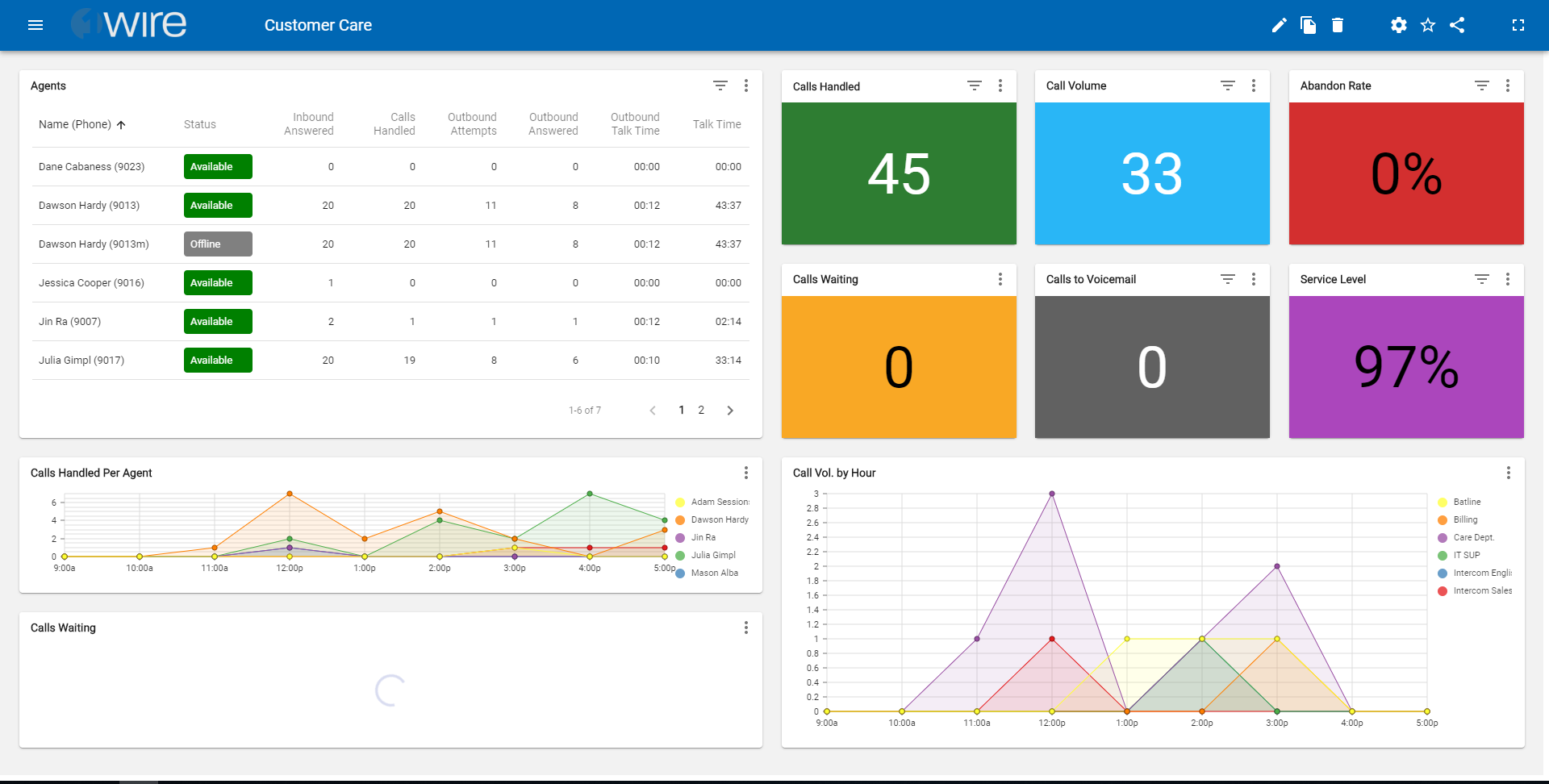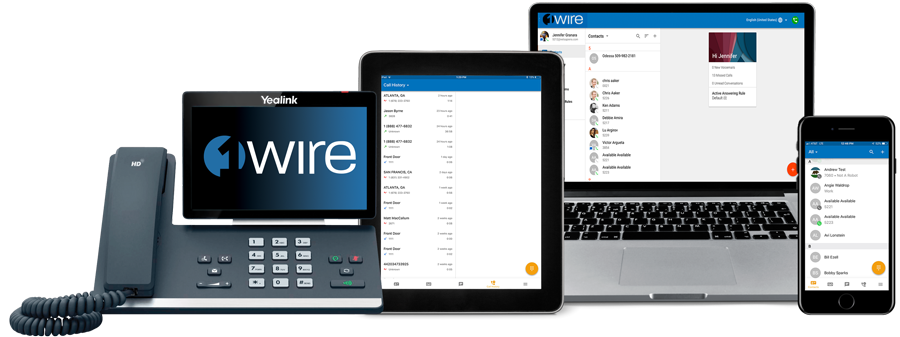As a small business owner, you are constantly striving to find solutions that help streamline your operations and improve productivity. Enter cloud phones – the game-changer small businesses have been waiting for. Cloud phones, also known as VoIP (Voice over Internet Protocol) phones, offer numerous benefits that can significantly enhance your business communication system.
One of the benefits of cloud phones for small businesses is cost savings. Unlike traditional phone systems, cloud phones do not require expensive on-site hardware, installation, or maintenance. As a result, they offer a cost-effective solution for small businesses and startups with limited budgets. Additionally, cloud phones provide flexibility and scalability, allowing you to easily add or remove lines as your business grows or changes.
Other benefits of cloud phones for small businesses is geographical mobility. With cloud phones, you can make and receive calls from anywhere with an internet connection. This means you can work remotely, seamlessly connect multiple office locations, and provide excellent customer service even when you’re on the go.
In this article, we will explore ten key benefits of cloud phones for small businesses and how they can revolutionize the way you communicate, collaborate, and serve your customers.

1. Cost savings with cloud phones
Cloud phones offer significant cost savings for small businesses. Unlike traditional phone systems that require expensive on-site hardware, installation, and maintenance, cloud phones operate through the internet. This eliminates the need for physical infrastructure, reducing upfront costs and lowering monthly expenses. Additionally, cloud phone providers often offer flexible pricing plans, allowing you to pay for only the features and services you need.
Another cost-saving aspect of cloud phones is the ability to make long-distance and international calls at lower rates. Traditional phone systems often charge high fees for such calls, but with cloud phones, you can take advantage of competitive rates offered by VoIP providers.
Furthermore, cloud phones eliminate the need for dedicated phone lines for each employee. With cloud phones, multiple lines can be easily set up and managed using a single internet connection. This not only reduces the number of physical lines required but also decreases the associated costs.
Overall, cloud phones provide a cost-effective solution for small businesses and startups, allowing them to allocate resources efficiently and invest in other areas of their business growth.

2. Scalability and flexibility of cloud phones
Small businesses often experience fluctuations in their communication needs as they grow or adapt to market changes. Cloud phones offer the scalability and flexibility required to meet these evolving demands. With traditional phone systems, adding or removing phone lines can be a lengthy and expensive process. However, cloud phones allow you to easily scale your phone system up or down based on your requirements.
Cloud phone providers typically offer flexible pricing plans that can be adjusted to match your business’s changing needs. This means you can add or remove phone lines as your team expands or downsizes, ensuring that you only pay for what you use. Additionally, cloud phones allow for easy relocation of your phone system without the hassle of physically moving infrastructure.
Furthermore, cloud phones enable seamless integration with other communication tools and applications, such as customer relationship management (CRM) systems or team collaboration platforms. This integration enhances flexibility by providing a unified communication experience across different channels and devices.
The scalability and flexibility of cloud phones empower small businesses to adapt and grow without being tied down by rigid phone systems.

3. Professional Image with Big-Business Features for Small Businesses
Projecting a professional image is crucial for small businesses and cloud phone systems play a pivotal role in achieving this. These systems offer a range of features once exclusive to larger corporations, effectively leveling the playing field. Features like advanced call routing, personalized voicemail, and professional greeting options enable small businesses to present a polished and sophisticated front to clients and partners. This capability is particularly vital for startups and small enterprises aiming to establish credibility and build trust in their market.
Moreover, cloud phone technology brings the advantage of consistency and reliability in communication, which are key elements of a professional image. With cloud phones, small businesses can ensure uninterrupted service and high-quality call experiences for their clients, akin to what larger companies offer. This reliability extends to features like voicemail-to-email services and conference calling, all of which are accessible from various devices, ensuring that business owners and their teams can communicate effectively, regardless of their location. This level of professionalism and accessibility, often associated with bigger businesses, can significantly enhance customer perception and satisfaction.
Another aspect where cloud phones contribute to a professional image is through their scalability and customization options. Small businesses can tailor their cloud phone systems to fit their specific needs, adding or removing features as they grow. This flexibility allows for a telecommunication setup that not only grows with the business but also continuously supports its evolving image and operations. By leveraging these big-business features, small businesses can not only compete more effectively but also establish a reputation for being forward-thinking and customer-centric, crucial qualities for long-term success in any industry.

4. Enhanced productivity with cloud phones
Cloud phones offer several features and functionalities that can significantly enhance productivity within your small business. One such feature is call forwarding, which allows you to redirect calls to different numbers or devices. This ensures that important calls are never missed, even if you are away from the office. You can set up call forwarding to your mobile phone or any other device with an internet connection, enabling you to stay connected and responsive to your customers.
Additionally, cloud phones often include voicemail-to-email transcription. This feature transcribes voicemail messages into text and sends them directly to your email inbox. This not only saves time but also ensures that important information is easily accessible and can be searched or shared with team members.
Another productivity-enhancing feature of cloud phones is the auto-attendant. An auto-attendant is a virtual receptionist who greets callers and provides menu options to direct them to the appropriate department or employee. This eliminates the need for a dedicated receptionist and ensures that calls are efficiently routed, saving time for both callers and your team.
Cloud phones also offer call analytics, which provide valuable insights into your business’s call patterns and performance. By analyzing call data, you can identify trends, optimize call-handling processes, and make data-driven decisions to improve overall productivity.
The advanced features and functionalities of cloud phones contribute to increased productivity by improving call handling, reducing missed calls, and providing valuable insights into your communication system.

5. Improved customer service with cloud phones
Providing excellent customer service is crucial for small businesses to build and maintain strong relationships with their customers. Cloud phones offer several features that can significantly enhance the customer service experience.
One such feature is call queuing, which allows you to manage high call volumes efficiently. Call queuing ensures that callers are placed in a queue and provided with updates or estimated wait times. This helps to reduce customer frustration and improves overall satisfaction.
Additionally, cloud phones offer call-recording capabilities. Call recording allows you to review customer interactions for quality assurance purposes, training, or dispute resolution. By analyzing recorded calls, you can identify areas for improvement, train your team more effectively, and ensure consistent service quality.
Cloud phones also provide the ability to set up virtual phone numbers. Virtual phone numbers can be assigned to specific departments, employees, or marketing campaigns, allowing you to track and measure the effectiveness of different communication channels. This data can then be used to optimize your customer service strategies and allocate resources accordingly.
Furthermore, cloud phones often include features like interactive voice response (IVR) systems, which allow callers to interact with menus and provide information or request specific services. This self-service functionality can reduce the need for live agent intervention, freeing up your team’s time to focus on more complex customer inquiries.
Cloud phones offer a range of features that enhance customer service by improving call management, providing call recording capabilities, and enabling data-driven decision-making.

6. Disaster recovery and business continuity are benefits of Cloud Phones for Small Businesses
Small businesses must be prepared for unforeseen circumstances that may disrupt their operations. Traditional phone systems are vulnerable to power outages, natural disasters, or other emergencies. However, cloud phones offer built-in disaster recovery and business continuity capabilities.
Cloud phones operate through the internet, which means they are not reliant on physical infrastructure that can be easily damaged or destroyed. In the event of a power outage or natural disaster, your cloud phone system can be accessed from any internet-connected device, ensuring uninterrupted communication.
Cloud phone providers often have multiple data centers in different locations, which further enhances reliability and redundancy. In the event of a failure in one data center, calls can be automatically routed to another center, minimizing downtime and ensuring business continuity.
Additionally, cloud phones allow for easy backup and restoration of your communication data. This means that even if your physical office is inaccessible, you can quickly set up temporary workspaces and continue to serve your customers without disruption.
Cloud phones provide small businesses with robust disaster recovery and business continuity capabilities, ensuring that communication remains uninterrupted even during challenging times.

7. Advanced features and functionalities of cloud phones
Cloud phones offer a wide range of advanced features and functionalities that can revolutionize the way small businesses communicate. These features go beyond basic calling capabilities and provide valuable tools for efficient and effective communication.
One such feature is call analytics, which provides detailed insights into your business’s call patterns, call volume, and call durations. By analyzing this data, you can identify peak call times, optimize staffing levels, and improve overall call handling processes.
Benefits of Cloud Phones for Small Businesses also often include call recording capabilities. Call recording allows you to review conversations, ensure quality control, train your team, and resolve any disputes or misunderstandings that may arise.
Another advanced feature is voicemail-to-email transcription. This feature transcribes voicemail messages into text and sends them directly to your email inbox. This makes it easier to prioritize and respond to voicemail messages, especially when you are away from the office.
Cloud phones also offer auto-attendants, which act as virtual receptionists. Auto-attendants greet callers and provide menu options to direct them to the appropriate department or employee. This ensures that calls are efficiently routed and saves time for both callers and your team.
Additionally, cloud phones often integrate with other communication tools and applications, such as customer relationship management (CRM) systems or team collaboration platforms. This integration allows for a seamless communication experience across multiple channels and devices.
The advanced features and functionalities of cloud phones empower small businesses with efficient communication tools, enabling them to enhance productivity, improve customer service, and make data-driven decisions.

8. Seamless integration with other business tools and applications are huge Benefits of Cloud Phones for Small Businesses
Benefits of Cloud Phones for Small Businesses offer seamless integration with other business tools and applications, further enhancing their value for small businesses. Integration with tools such as customer relationship management (CRM) systems, team collaboration platforms, or email clients can streamline workflows and improve overall efficiency.
For example, integrating your cloud phone system with a CRM system like Salesforce allows you to access customer information and call history directly from the CRM interface. This enables your team to provide personalized and informed service to each customer, resulting in improved customer satisfaction.
Integration with team collaboration platforms, such as Slack or Microsoft Teams, allows for real-time communication and collaboration. You can easily initiate calls, share files, or join virtual meetings directly from these platforms, eliminating the need to switch between different applications.
Furthermore, cloud phones can integrate with email clients, enabling you to make calls or access voicemail messages directly from your email inbox. This integration improves workflow efficiency by centralizing communication channels and reducing the need to switch between different applications.
The seamless integration of cloud phones with other business tools and applications enhances productivity, collaboration, and overall efficiency within small businesses.

9. Benefits of Cloud Phones for Small Businesses Enhanced mobility and remote work capabilities
Cloud phones offer enhanced mobility and remote work capabilities for small businesses. With cloud phones, you can make and receive calls from anywhere with an internet connection, allowing for greater flexibility and work-life balance.
Cloud phones enable remote work by providing the ability to forward calls to mobile devices or any other internet-connected device. This means you can stay connected with your team and clients, even when you’re not in the office. Remote work capabilities allow for increased productivity and flexibility, as employees can work from home, on the road, or from different office locations.
Additionally, cloud phones often include mobile apps that allow you to access all the features of your cloud phone system from your smartphone or tablet. These apps provide a seamless communication experience, regardless of the device you are using. You can make calls, send messages, or access voicemail from a single interface, ensuring that you never miss an important communication.
Cloud phones also enable seamless call transfers between devices. For example, if you receive a call on your desk phone but need to leave the office, you can easily transfer the call to your mobile phone without interruption. This ensures that important calls are not missed and that communication remains seamless.
Cloud phones provide enhanced mobility and remote work capabilities, enabling small businesses to adapt to the changing work landscape and improve overall flexibility.

10. Easy Installation and User-Friendly InterfaceAdd your title
One of the standout advantages of cloud phone systems for small businesses is their ease of installation, which starkly contrasts with the complex setup often associated with traditional telecommunication systems. Cloud phone systems eliminate the need for extensive wiring, physical hardware installations, or specialized technical expertise. Typically, these systems can be set up and operational in a matter of hours, not days. This rapid deployment is a game-changer for small businesses, where saving time and reducing disruptions are crucial. The simplicity of plug-and-play handsets, easy-to-follow instructions, and user-friendly online dashboards means that even individuals with minimal technical skills can set up and manage the system with ease.
The user-friendly interface of cloud phone systems is another significant benefit. These systems are designed with the end-user in mind, offering intuitive controls and easy navigation. Business owners and their teams can easily manage their call settings, voicemail, call forwarding, and other features through a simple web-based interface or mobile app. This accessibility ensures that employees can quickly adapt to the system without requiring extensive training. The interface often includes visual voicemail, drag-and-drop call handling, and real-time updates, which streamline communication processes and enhance overall productivity.
Furthermore, the user-friendly nature of cloud phone systems extends to their maintenance and troubleshooting. Updates and patches are typically rolled out automatically by the service provider, ensuring that the system is always up-to-date with the latest features and security protocols. If issues do arise, user-friendly help resources, such as online tutorials, FAQs, and responsive customer support, are readily available. This approach reduces the reliance on external IT support and empowers small business owners to take control of their communication systems, ultimately saving time and resources while ensuring a smooth operational flow.
Choosing the right cloud phone provider for your small business
Choosing the right cloud phone provider for your small business is a critical decision that can significantly influence your business’s communication efficiency and professionalism. When considering a provider, it’s essential to look for one that offers a comprehensive range of features, reliable customer support, scalability, and user-friendly interfaces.
1Wire stands out as a provider that comprehensively addresses the needs of small businesses. We offer a suite of services and features that align with the key benefits of cloud phone systems. With 1Wire, small businesses can expect to enjoy cost-effectiveness, enhanced communication features, and a system that grows with their business. Our focus on providing a user-friendly experience, coupled with robust customer support, makes 1Wire a compelling choice for businesses looking to leverage the advantages of cloud phone technology.



